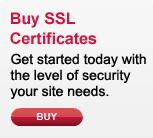News
Tax day tips for information security
April 15 is quickly approaching and those that have not done so already are scrambling to complete the necessary forms and file their state and federal taxes. Although many are excited at the prospect of a large tax return, individuals must take a few precautions to ensure that their personal information is kept away from the prying eyes of cybercriminals.
The Wall Street Journal noted that as many as 1,000 citizens could have their sensitive data stolen as part of identity theft activities during tax filing. Furthermore, the IRS found that identity theft increased 66 percent last year, with 1,492 investigations taking place in 2013, 898 in 2012 and 276 in 2011. For this reason, it is increasingly important that Americans follow best practices for safeguarding their personal information as they file their taxes.
Check for an SSL certificate
Especially when filing through an online service, users should check to ensure that the page is protected with SSL encryption, Computerworld recommended. This technology prevents unauthorized third parties from viewing protected data by scrambling it so that the intended recipient is the only user able to read the information using a decryption key. Individuals can look for a small lock icon, a green address bar, or sites that begin with HTTPS instead of HTTP as indicators of the presence of SSL certificate security.
Use a secure Internet connection
Although the temptation can be strong to file taxes the moment documents are received for a faster return, users should refrain from utilizing public Wi-Fi networks and Web connections for e-filing. CNBC noted that these connections could be intercepted by cyberattackers, allowing the criminal to view online activities and capture sensitive information as individuals fill out their tax forms. Instead, users should wait until they are at home or can connect to another secure Internet network for better information protection.
Use strong, secured passwords
A main mistake that many e-filers make when creating a profile on an online tax site is using an easily guessed password, or one that they have utilized for another account. As this password is many times the first line of defense against hackers, it is important to employ robust, complex codes to prevent unauthorized access. Users should establish a long password of eight characters or more, including letters, numbers and, where possible, different symbols. Additionally, individuals should not utilize their spouse's name, their hometown or other information that could be easily revealed about them. Additionally, these credentials should be stored in a trusted password manager or secure physical location to ensure that they can be accessed when necessary but are not at risk.
Look out for phishing scams
Computerworld also noted that this is the season for tax-related phishing scams, which leverage users' excitement about receiving their return quickly to gain personal information. Many times, these will appear in the form of an email that may appear to be from the IRS, or another reputable source, and may prompt the user to send additional data or confirm the information they have provided. Users should never reply to these emails or click on attached links, as they may be malicious. Instead, contact the tax authority utilized to ensure the return was properly filled out and received.
Protect data in transit with an SSL certificate today.


 Email
Email
